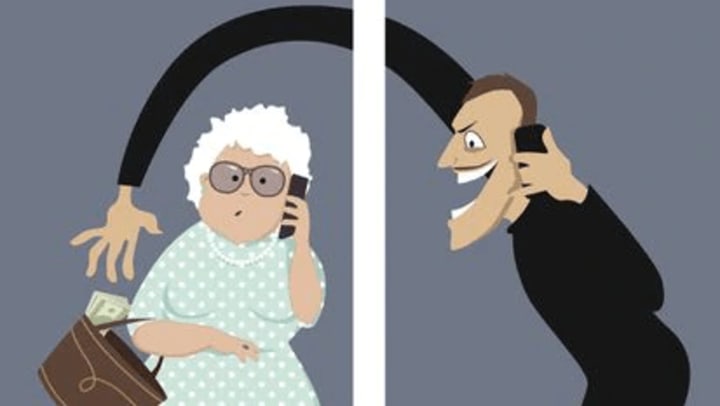The National Council On Aging lists the Top 10 most common financial scams that target seniors, which include things like medicare/health insurance scams, telemarketing scams, fraudulent anti-aging products, and more. It is also important to note that everyone is at risk for financial abuse, not just those with high income or assets.
Risk for scam and fraud doesn’t only come from strangers like solicitors and telemarketers. More than half of the reported elder abuse is committed by the person’s own family members; adult children, grandchildren, nieces, nephews, and others.
Below, we discuss tips and tools for seniors and elders to prevent risk of scam and fraud.
1. Stay involved
Isolation is one of the most common risks for elders and can further instigate chances of scamming and fraud. Staying socially active and involved can help protect elders and reduce risk of scam and fraud.
2. Never buy from unfamiliar companies or solicitors
A good rule of thumb is to ask for something in writing about any offer or charity and never donate or buy if it requires giving your credit card information to a stranger.
3. Be cautious with credit card information and bank accounts
Never give your credit card, banking, Social Security, Medicare, or any other personal and sensitive information over the phone unless you initiated the call.
Use a paper shredder for all documents and receipts with credit card information as well as monitoring bank accounts regularly are great habits for seniors to practice to reduce their risk of identity theft.
4. Register for “DO NOT CALL”
There is a great resource that seniors can register phone numbers to be taken off all calling lists called the National Do Not Call Registry. It’s a very simple, 4-step process that can eliminate the amount of calls you receive from potential telemarketers, therefore, reducing the risk of scams.
5. Keep track of your mail
Don’t let incoming mail sit in your mailbox for extended periods of time. When sending out sensitive mail, take it directly to the post office or a secure location.
Opting for paper-free options, like direct deposit, puts checks directly into your secure accounts.
6. Skepticism is key
Seniors should continually practice being an informed consumer. This means that any and all unsolicited offers should be thoroughly researched. One may consider asking for help from a loved one, or friend, to have another set of eyes on the situation at hand.
Read carefully through any contracts, forms, and agreements that involve monetary exchange to ensure all your requirements are meant and you understand cancellation, refund, and all other terms and conditions.
Remember, these are your decisions and your decisions alone. Do not feel pressured to make purchases, sign contracts, or commit to anything without it being your choice.
How to protect loved ones
There are ways that caregivers and loved ones can help stop or prevent their loved one or senior from fraud or scam.
1. Call and visit regularly
Remember social isolation is a big risk factor for seniors, checking in with them on a regular basis will help keep you up to date to notice any significant changes in their lives and/or behavior.
2. Provide respite for caregiver
If your loved one has a caregiver, monitor that amount of rest they receive. Often times, caregivers can be financially and emotionally stressed and steal the assets of those they are supposed to be caring for.
3. Bank safeguards
If the concern is on the loved one’s financial decisions, set up a small, separate bank account for them. This could be a smaller amount of their assets with a spending limit. That way, their other finances could be saved in a separate and more secure account.
4. Limited account oversight
Ask financial institutions to send statements and alerts to a trusted person that does not have direct access to the account so that person can check for fraud.
If you are caring for a loved one or elder, there are some additional warning signs a caregiver can pay attention to that could indicate financial abuse or scam.
- 1. Unusual changes in the person's account
- a. This includes withdrawals, new person(s) added to the account, sudden use of debit or credit card
- 2. The person suddenly appears confused and afraid
- 3. Standard bills, such as utility, rent, or medical are unpaid despite sufficient funds
- 4. Caregiver will not allow access to the senior
- 5. Piled up “sweepstakes”, “free gifts”, or magazines, are piled up
- a. This may mean that they are on a list that puts them at higher risk
What can victims do?
Unfortunately, scam and fraud are common, especially among older adults. If you feel you or a loved
one has been a victim of this type of activity, don’t be afraid to take action- waiting could make
it worse.
- Call bank and credit card companies
- Cancel bank, debit, and credit cards linked to the stolen account
- Reset personal identification numbers
- Contact legal services, such as Adult Protective Services




